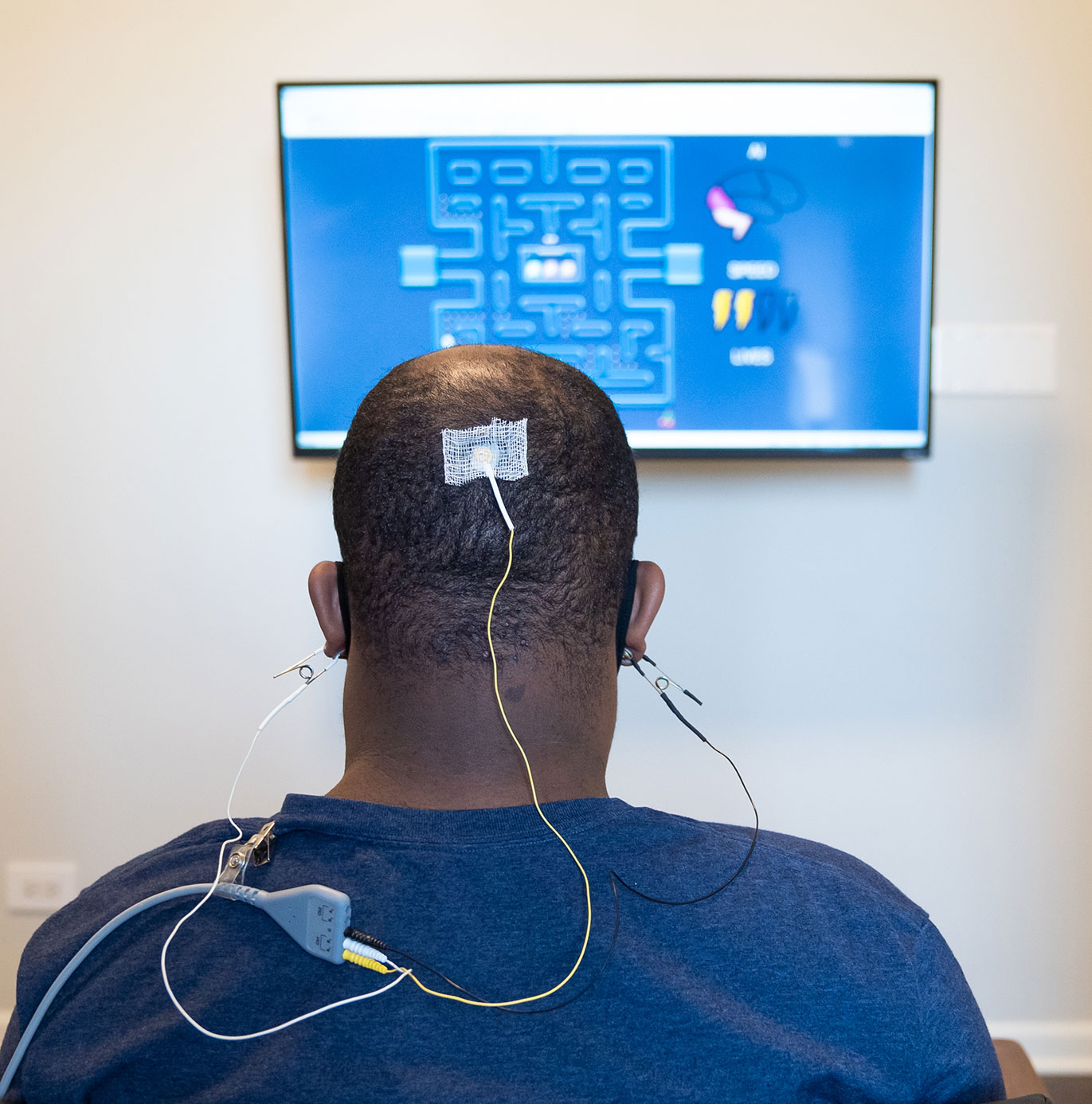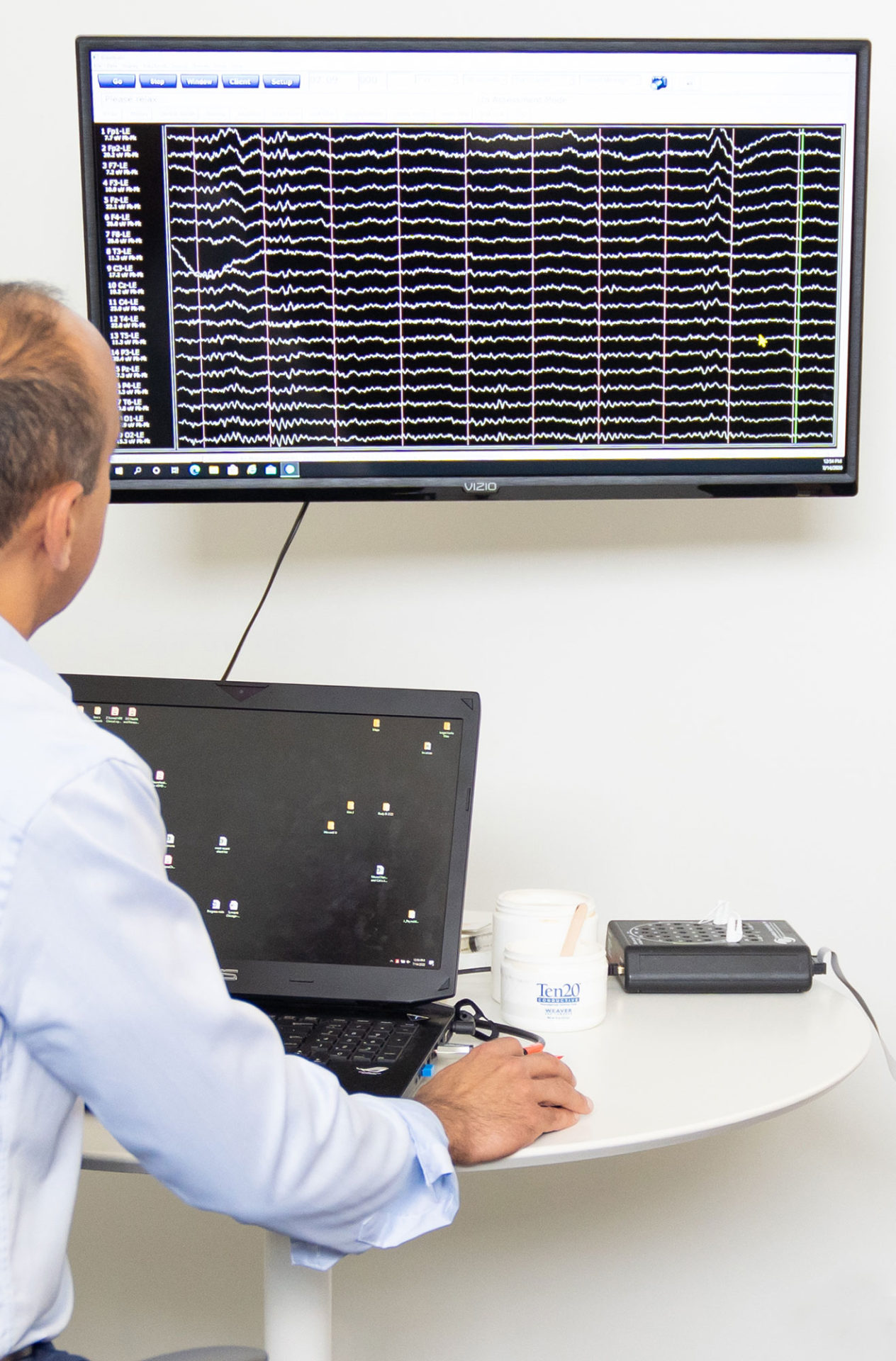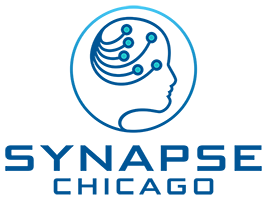gain control with neurofeedback
What is neurofeedback?
Neurofeedback is a type of biofeedback that utilizes the concepts of operant conditioning and neuroplasticity to “train” your brain to function at its optimal level. This technique uses real-time electroencephalography (or EEG) and a system of rewards to train the brain to generate more of the desired frequencies and less of others. It targets the underlying brain dysregulation associated with your health concerns so that you may experience better control of your behavior, a decrease in aggravating symptoms, and enhancement of performance at work or school.

What to expect during a neurofeedback session
At the start of each session, electrodes are placed on your scalp to measure brain wave activity in areas of dysregulation (based on the results of your QEEG). You will then receive auditory or visual “rewards” when your brain is functioning within an optimal threshold, whether that’s playing a game, enjoying a video, or watching real-time EEG feedback of your brain wave activity. Through repetition, these positive neural pathways are reinforced, whereas negative ones are reduced or eliminated. The goal is to enrich neural connections and provide brain flexibility for optimal performance and cognition.
How can neurofeedback therapy help me?
The success of your treatment depends on the expertise of the practitioner, the method used, and other underlying health conditions that you may have. EEG biofeedback is a fun, interactive, computer-based training that trains your brain to achieve a healthier and more focused state. The effect of neurofeedback is long-lasting because your brain has actually learned a more efficient way of functioning. Neurofeedback can also help optimize brain function to achieve peak performance and help you better understand your emotions and behavior.

Does neurofeedback work?
Decades of research have shown that neurofeedback can be used as an effective treatment for many mental and developmental disorders including autism spectrum disorders, ADHD, anxiety and depression, OCD, and bipolar disorder. It may also help people with mild traumatic brain injury, insomnia, migraines, and addiction. Scientific studies on the effects of neurofeedback go back decades and now boast hundreds of peer reviewed journal articles supporting its efficacy. The technology continues to advance leading to more innovative methods and successful integrations that have been added to the growing evidence of neurofeedback’s success in changing brains and lives.
Synapse Chicago is here for you
experience the benefits of neurofeedback
